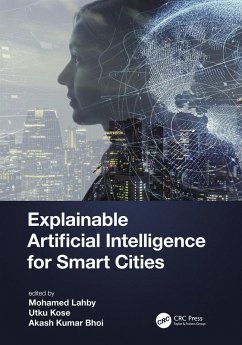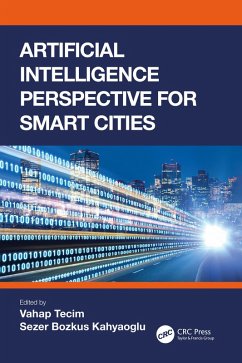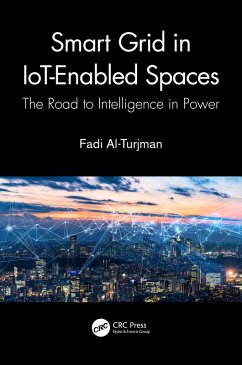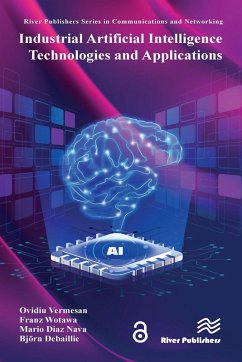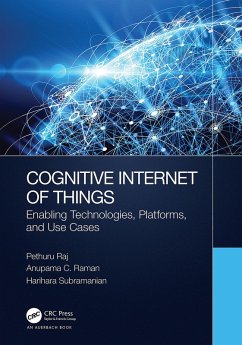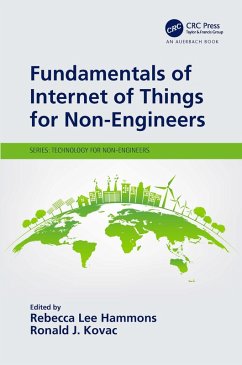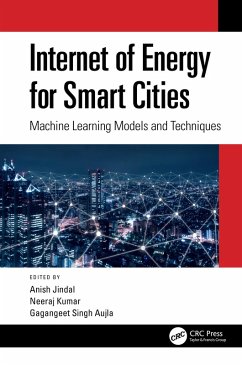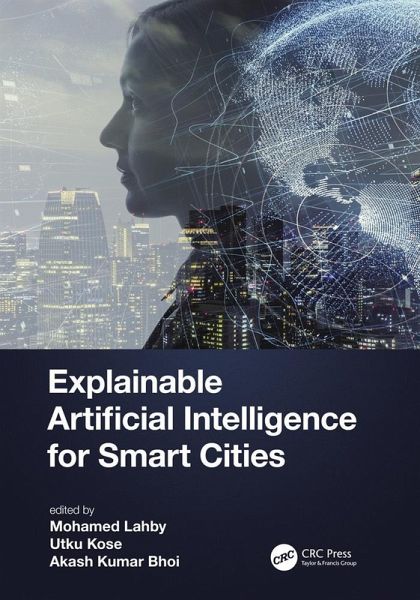
Explainable Artificial Intelligence for Smart Cities (eBook, PDF)
Versandkostenfrei!
Sofort per Download lieferbar
43,95 €
inkl. MwSt.
Weitere Ausgaben:

PAYBACK Punkte
22 °P sammeln!
Thanks to rapid technological developments in terms of Computational Intelligence, smart tools have been playing active roles in daily life. It is clear that the 21st century has brought about many advantages in using high-level computation and communication solutions to deal with real-world problems; however, more technologies bring more changes to society. In this sense, the concept of smart cities has been a widely discussed topic in terms of society and Artificial Intelligence-oriented research efforts. The rise of smart cities is a transformation of both community and technology use habit...
Thanks to rapid technological developments in terms of Computational Intelligence, smart tools have been playing active roles in daily life. It is clear that the 21st century has brought about many advantages in using high-level computation and communication solutions to deal with real-world problems; however, more technologies bring more changes to society. In this sense, the concept of smart cities has been a widely discussed topic in terms of society and Artificial Intelligence-oriented research efforts. The rise of smart cities is a transformation of both community and technology use habits, and there are many different research orientations to shape a better future.
The objective of this book is to focus on Explainable Artificial Intelligence (XAI) in smart city development. As recently designed, advanced smart systems require intense use of complex computational solutions (i.e., Deep Learning, Big Data, IoT architectures), the mechanisms of these systems become 'black-box' to users. As this means that there is no clear clue about what is going on within these systems, anxieties regarding ensuring trustworthy tools also rise. In recent years, attempts have been made to solve this issue with the additional use of XAI methods to improve transparency levels. This book provides a timely, global reference source about cutting-edge research efforts to ensure the XAI factor in smart city-oriented developments. The book includes both positive and negative outcomes, as well as future insights and the societal and technical aspects of XAI-based smart city research efforts.
This book contains nineteen contributions beginning with a presentation of the background of XAI techniques and sustainable smart-city applications. It then continues with chapters discussing XAI for Smart Healthcare, Smart Education, Smart Transportation, Smart Environment, Smart Urbanization and Governance, and Cyber Security for Smart Cities.
The objective of this book is to focus on Explainable Artificial Intelligence (XAI) in smart city development. As recently designed, advanced smart systems require intense use of complex computational solutions (i.e., Deep Learning, Big Data, IoT architectures), the mechanisms of these systems become 'black-box' to users. As this means that there is no clear clue about what is going on within these systems, anxieties regarding ensuring trustworthy tools also rise. In recent years, attempts have been made to solve this issue with the additional use of XAI methods to improve transparency levels. This book provides a timely, global reference source about cutting-edge research efforts to ensure the XAI factor in smart city-oriented developments. The book includes both positive and negative outcomes, as well as future insights and the societal and technical aspects of XAI-based smart city research efforts.
This book contains nineteen contributions beginning with a presentation of the background of XAI techniques and sustainable smart-city applications. It then continues with chapters discussing XAI for Smart Healthcare, Smart Education, Smart Transportation, Smart Environment, Smart Urbanization and Governance, and Cyber Security for Smart Cities.
Dieser Download kann aus rechtlichen Gründen nur mit Rechnungsadresse in A, B, BG, CY, CZ, D, DK, EW, E, FIN, F, GR, HR, H, IRL, I, LT, L, LR, M, NL, PL, P, R, S, SLO, SK ausgeliefert werden.




